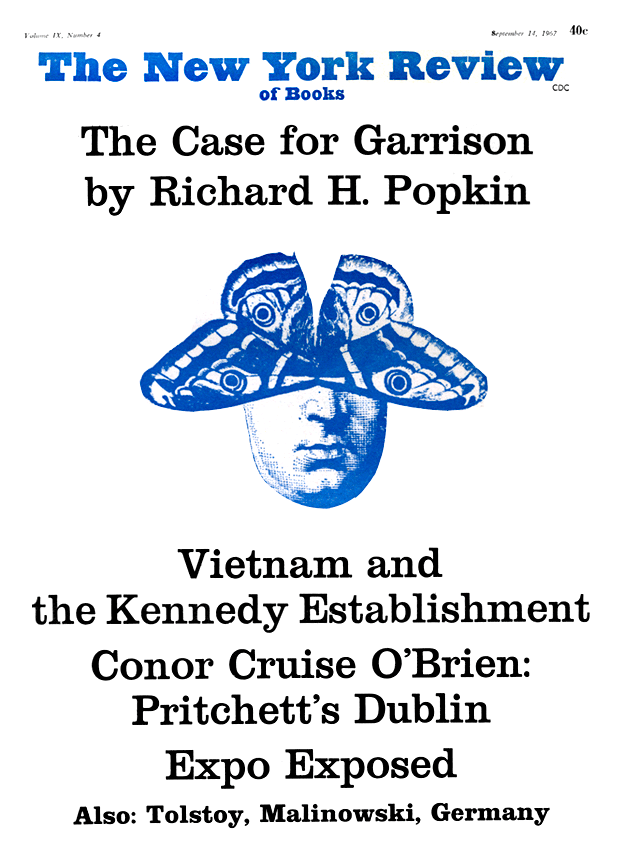In response to:
Color It Orange from the July 13, 1967 issue
To the Editors:
What is clear after Nigel Dennis’s review of my short preface to John Hawkes’s play [NYR, July 13] is that I had the wrong ethos coming up the drainpipe like a centipede. I am glad to be instructed, moreover, in the use of Lilliput to express the court of Queen Anne, where Mr. Dennis would surely be more at home.
As for the plays, I don’t want to rehearse the arguments about words becoming things which are about nothing but themselves, for Mr. Dennis has adequately misrepresented that tradition, which brings us to a “void” which gives him the creeps. Thus he speaks of Beckett and Genet “filling up the void with a make-believe of meaningless words and stage ‘business,’ ” as if that make believe weren’t a language of its own. True, he doesn’t think Hawkes (or I) gets that far; he is not filling the void but merely playing dirty pool. But what void is Mr. Dennis filling with the personal mockeries he gives us “in terms of” criticism? And whose world is “a phantom world”—the man who follows the words where they’ll take him, maybe coming to dead ends; or the man who pontificates, in this day and age, that “what is required when terms are used is a firm grasp of why they are being used and of what they mean,” as if the meanings were always there beyond a doubt.
Where the meanings are there beyond a doubt, Mr. Dennis is rather cutely impatient and quite a cut-up. He’s one of those critics who has you continue where you haven’t left off. So a description of Hawkes at rehearsal becomes a cue for not reading a later passage which could have been clarified by a citation I did make. “It’s the witching hour in the wax museum,” Mr. Dennis, and I ain’t grinning. The passage from my preface ends with the sentences: “There is a time-serving brutality in the theater, which confounds playing with acting. In the theater you must play, but play before your time is up.” “Whatever does this mean?” the man exclaims. Grasp firmly, Sir, I don’t know how to say it more exactly. In other words it wouldn’t be the same thing.
No more than Hawkes’s The Questions is trying to do the same thing, though using the same device, as Tennessee Williams’s Suddenly Last Summer, which Mr. Dennis places in the same “vintage that provided Waiting for Godot and The Chairs…” He accuses us of not being concerned with the meanings of words, but what are we to make of a critic with eighteenth century standards whose meaning is utterly clear but who lacks all sense of distinction? Same vintage? Speaking of “bilge.”
Herbert Blau
Middletown, Conn.
This Issue
September 14, 1967


